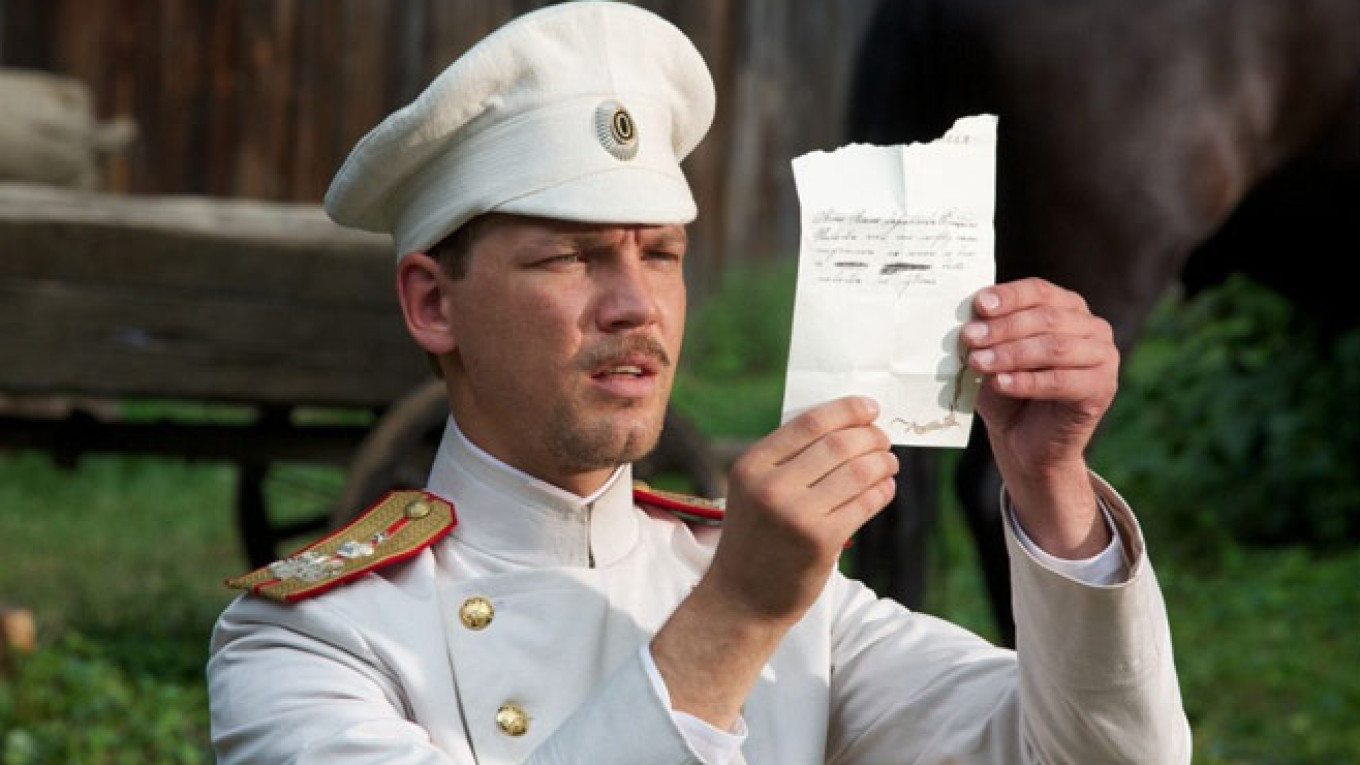HOLLYWOOD — Nikita Mikhalkov's film "Sunstroke" will be the director's sixth submission to the Oscar competition and will give the renowned Russian moviemaker a chance to capture his second Academy Award.
Unlike last year's awards entry "Leviathan," the story about a corrupt mayor of a small seaside fishing village, "Sunstroke" has the blessing of Russian officialdom.
This big budget, three-hour epic love story focuses on the period just as the Russian revolution gains traction and the old imperial era is about to be destroyed.
More specifically, the plot revolves around a tsarist soldier, awaiting his fate in a Bolshevik prison camp, as he recalls an affair he had with a beautiful married woman before war and revolution.
"Sunstroke" is one of 81 foreign films vying for the best Oscar trophy. The foreign language film award is presented annually by the U.S. Academy of Motion Picture Arts and Sciences, an industry backed non-profit organization.
As a rule, the academy refrains from commenting on the artistic merits of entries to avoid any appearance of favoritism.
Most of the entries, including "Sunstroke," have not yet been screened for academy voters. Creating buzz among the few early showings is Hungary's "Son of Saul."
Oscar and Nikita
After the breakup of the Soviet Union, films representing the Russian Federation have had six nominations, including one Oscar win for Mikhalkov for "Burnt by the Sun" in 1994.
The director has been chosen by his colleagues to represent Russia three other times, for "Close to Eden" (also called "Ugra — Territory of Love") in 1992, "12" in 1997, and "The Barber of Siberia" in 1998. But the last film was disqualified when the print did not arrive in Los Angeles on time for screening, an academy official told The Moscow Times.
The academy official also said that Russian movies were strongly represented during the Soviet era, with nine nominations and three Oscars from 1968 to 1991.
"Sunstroke" was adapted from a 1927 novel by Nobel Prize-winning Russian novelist Ivan Bunin while living in exile in Paris.
Although the plot itself has not been the subject of any controversy, the film's premieres in the Crimean cities of Sevastopol and Simferopol drew some unfavorable attention in the world press.
Politics and Art
Foreign film buffs in Hollywood are anxiously awaiting the reaction to "Sunstroke." The expectations are fueled by the reaction to last year's Oscar-nominated Russian film, director Andrei Zvyagintsev's "Leviathan," which was described by some movie critics as "a Russian masterpiece."
Both "Leviathan" and 2013's entry "Stalingrad" each grossed more than $1 million at U.S. art houses. "Stalingrad" was a huge box office hit both in Russia and China.? ? ?
The academy will reduce the 81 contenders to a so-called "short list" of nine finalists in mid-December, with five nominated films to be announced on Jan. 14. The Oscars will be presented on Feb. 29.
Mikhalkov is not hopeful about his chances. He was quoted by RIA Novosti as saying, "I'm sure that we won't make the Oscar short list. I'm not talking about a question of taste, but about Ukraine's 'black list.' It's politics."
Contact the author at artsreporter@imedia.ru
A Message from The Moscow Times:
Dear readers,
We are facing unprecedented challenges. Russia's Prosecutor General's Office has designated The Moscow Times as an "undesirable" organization, criminalizing our work and putting our staff at risk of prosecution. This follows our earlier unjust labeling as a "foreign agent."
These actions are direct attempts to silence independent journalism in Russia. The authorities claim our work "discredits the decisions of the Russian leadership." We see things differently: we strive to provide accurate, unbiased reporting on Russia.
We, the journalists of The Moscow Times, refuse to be silenced. But to continue our work, we need your help.
Your support, no matter how small, makes a world of difference. If you can, please support us monthly starting from just $2. It's quick to set up, and every contribution makes a significant impact.
By supporting The Moscow Times, you're defending open, independent journalism in the face of repression. Thank you for standing with us.
Remind me later.



